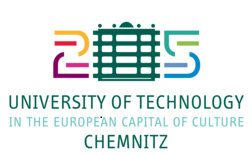Ordeal in Mevlevi Education in the Framework of Social Learning Theory
DOI:
https://doi.org/10.71514/jssal/2022.58Keywords:
Ordeal, mevlevi, mevlevihane, ordeal education, social learning theory.Abstract
The importance of spiritual maturation in the religion of Islam is the Prophet of Islam. It has an important place in the hadiths and life of Hz. Muhammad. This maturation occurs when a person resists his whims and resists his ego. This is subjected to a process of resistance. In the Mevlevi tradition, this process is defined as "ordeal". The ordeal takes 1001 days. The person who suffers is obliged to serve the people who came to the Mevlevi Lodge before him, not to fail in respect and dignity, and to fully fulfill the responsibilities given by the person he is in charge of. Every person in the Mevlevi lodge is called a soul. Each new soul tries to learn the manners and manners by observing the states and attitudes of other souls. It is noticed that the principle of following the role and model chosen by the person in the social learning theory also has a place in the Mevlevi education system. Social learning theory argues that individuals in society learn by modeling and observing other people based on the fact that the individual is a social being. The ordeal starts in the kitchen. In this place known as Matbah, it is necessary to accomplish all kinds of tasks given by Ascı Dede Efendi. This is the essence of the ordeal. Admiration is fed to those who complete the difficult path. If a person completes this journey that he started with the simplest services, he is considered to have reached perfection.
Downloads
References
Akdemir, L. (2012). “Mevlevilikte Çile Olgusunun Fizyolojik ve Psikolojik Boyutları” Necmettin Erbakan University, Institute of Social Sciences, Unpublished Master's Thesis, Konya.
Aksoy, M., Akbulut, A. B., & İflazoğlu, N. (2016). Mevlevilikte Mutfak Kültürü ve Ateşbaz-ı Veli Makamı (Culinary Culture and Atesbaz). Journal of Tourism and Gastronomy Studies, 96(103).
Arpaguş, S. (2009). Mevlevîlikte Mamevi Eğitim, İstanbul Vefa Publications.
Azsöz, G. (2016). “Mevlevîhânelerde Matbah-ı Şerîf”, Toros University Faculty of Economics and Administrative Social Sciences Journal of Social Sciences, 3(5).
Bayrakcı, M. (2013). Sosyal Öğrenme Kuramı ve Eğitimde Uygulanması. Sakarya Üniversitesi Eğitim Fakültesi Dergisi, 0(14), 198-210. Retrieved from https://dergipark.org.tr/en/pub/sakaefd/issue/11210/133874
Bandura, A. (1977). Social learning theory, New York: General Learning Press.
Bandura, A. (1986). Social foundations of thought and action: A social-cognitive view. Englewood Cliffs, NJ: Prentice-Hall.
Brown, M., Treviño, L., & Harrison, D. (2005). Ethical leadership: A social learning perspective for construct development and testing. Journal of Business Ethics, 97, 117–134.
Çetīnkaya, Y. (2011). Hz. Mevlânâ, Aşk ve Mûsikî hakkında. Journal of Academic Studies, 13(51).
Demirci, M. (2007). Bir eğitimci olarak Mevlevî Çilesi”, Marife, 7(3).
Taberî, M. b. C. (2013). Taberi Tefsiri, Hisar Publications.
Eraydın, S. (1993). “Çile”, DİA, Volume:8.
Göktaş, V. (2011). “Tasavvuf Terbiyesi’nin Günümüz Din Eğitim ve Öğretimine Sunabileceği İmkânlar”, Journal of Ankara University Faculty of Theology, 52(2).
Gölpınarlı, A. (2006), Mevlânâ’dan Sonra Mevlevîlik, İstanbul, İnkılâp and Aka Publishing Houses.
Henning, W. 2004. “Every day cognition and situated learning”. In Handbook of research on educational communications and technology, 2nd, Edited by:Jonassen, D. 143-168. Mahwah, Nj:Erlbaum.
Gönül, M. (2007). Mevlevîlik ve Mûsikî. İstem, (10), 75-89.
İsfehâni, E.N. (2008). Hilyetü’l-Evliya, C:5, (Translated by Yahya Atak – Enver Gönenç - Sait Aykut – Abdulhamit Birışık – Asst. Prof. Dr. Fuat Aydın), İstanbul, Sebat Publications.
Koşay, H.Z. (2003). “Mevlevîlik’te Matbah Terbiyesi”, Tasavvuf Kitabı, Compiled by Cemil Çiftçi, İstanbul, Kitabevi Publications.
Kula, S. S. (2021). Mind Games with the Views of Classroom Teachers. International Journal of Research in Education and Science (IJRES), 7(3), 747-766. https://doi.org/10.46328/ijres.1471
Küçük, S. (2013). “Genel Hatlarıyla Mevlevîlik”, Mevlevî Dünyasından Bahariye Mevlevîhânesi, Ed. M. Baha Tanman, İstanbul, İstev Publications.
Küçük, S. (2003). Mevlevîliğin Son Yüzyılı, İstanbul, Simurg Publications.
Konur, H. (2005), “Mesnevî’de Mûrîd-Mürşîd İlişkisi”, Tasavvuf İlmî ve Akademik Araştırma Dergisi, 6(14).
Liu, J., Kwan, H., Fu, P., & Mao, Y. (2014). Ethical leadership and job performance in China: The roles of workplace friendships and traditionality. Journal of Occupational and Organizational Psychology, 86, 564–584.
Mevdûdi, (2003). Tefhîmu’l Kur’an Meali, Çev. Durmuş Bulgur, Yediveren Yay. Konya.
Müslim, ez-Zikr ve’d-Du’a ve’t-Tevbe ve’l-İstiğfar,18 (h.n. 2722), Cilt 4, s. 2088;
Ösen, S. (2015), “Türk Eğitim Tarihi İçerisinde Mevlevîhânelerin Yeri”, Turkish History Education Journal, 4(2).
Sühreverdi, E.H.Ş. (1999). Avârifü’l-Meârif-Gerçek Tasavvuf, (Çev. Abduvehhab Öztürk), Ankara, Semerkand Publications.
Tekin, Ö. (2014). Konya Mevlana Müzesi Arşivi 165 Nolu Zarf Işığında Yenikapı Mevlevîhânesi”, Fatih Sultan Mehmet Vakif University Social Sciences Institute Unpublished Master Thesis, İstanbul.
Resick, C., Hargis, M., Shao, P., & Dust, S. (2013). Ethical leadership, moral equity judgments, and discretionary workplace behavior. Human Relations, 66(7), 951–972. https://doi.org/10.1177%2F0018726713481633
Yıldız, İ., & Özkan, A. (2017). Türk Tasavvuf Öğretisi Olarak Mevlevîlikte Manevi Eğitim. Uluslararası Türk Kültür Coğrafyasında Sosyal Bilimler Dergisi, 2(1), 48-55.
Yöndemli, F. (1997). Mevlevîlik’te Semâ Eğitimi, Ankara, Atatürk Kültür Merkezi Publications.
Zübeyir, H. (2001). “Mevlevîlikte Mutfak Terbiyesi” Türk Yurdu, (1., 2. Serial Turkish Edition), İstanbul, Tutibay Publishing House.
Downloads
Published
How to Cite
Issue
Section
License
Copyright (c) 2022 Ömer Tekin

This work is licensed under a Creative Commons Attribution-NonCommercial 4.0 International License.
The work is made available under the terms of the Public Offer and the Creative Commons Attribution 4.0 International License (CC BY 4.0). This license allows anyone to reproduce, distribute, and adapt the material in any medium or format, including for commercial purposes, provided that proper credit is given to the creator(s) and the original source.












